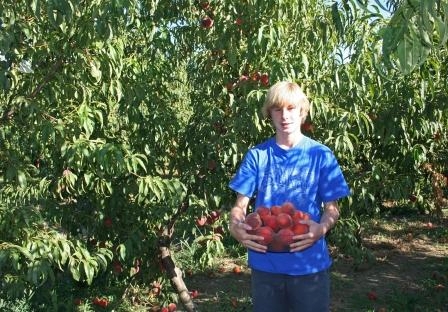Posts Tagged: Michael Pollan
Healthful and mindful eating

The low cost of food in the United States is one of the factors contributing to food gluttony and weight problems. On average, Americans spend less than 10 percent of their disposable income on food — 5.5 percent on food “at home” (grocery stores, retail outlets), and 3.9 percent on food “away from home” (USDA data, 2009).
Compare what Americans spend with other countries (household final consumption expenditures; USDA data, 2007)
| United States | 5.7% |
| United Kingdom | 8.6% |
| Germany | 11.4% |
| France | 13.7% |
| Argentina | 20.2% |
| Mexico | 24.2% |
| Russia | 28.7% |
| India | 32.4% |
| China | 34.9% |
| Jordan | 40.9% |
| Pakistan | 45.7% |
| Azerbaijan | 50.4% |
While food sustains life, it also provides emotional comfort. But many people (for many reasons) overindulge. As a society, we tend to be mindless eaters, not mindful eaters. We eat on the run, in the car, at the desk, and from shrink-wrapped frozen containers that have been microwaved. Many people no longer cook, or they consider putting the “shrink-wrapped frozen container" in the microwave as cooking.
A little more connection with our food, whether we prepare it ourselves, or not, can help us to slow down, eat proper portions, and make better food choices. For those who don’t know much about cooking, it’s not difficult to make simple and healthful meals. Grab a cookbook from the library, or take a cooking class in your community. Healthful recipes can also be found online:
- Davis Farmers Market recipes (note: the author is on the market board as a consumer representative)
- National Institutes of Health recipes
- Mayo Clinic recipes
Eating healthfully is a skill we all can master, regardless of our budgets, hectic schedules, or cooking prowess. And eating healthfully doesn’t mean depriving ourselves of delicious food or occasional splurges.
National Nutrition Month is just ending, and I spent some time writing and collecting adages that remind us to eat healthfully and mindfully. Here are ten (of many) maxims that I like. Perhaps you have some to add to the list.
- If it isn’t really good or healthful, don’t bother eating it.
- If you are not hungry enough to eat an apple, you are not hungry. (thank you Michael Pollan and the NY Times)
- Choose appropriate portions. (guide 1 and guide 2)
- Put the fork down and take some breaths between each bite.
- Do not put food in your mouth when there is food in your mouth.
- Avoid eating in the car or in front of the television.
- Learn to prepare three dishes well. (simple is fine)
- Visit your farmers market or produce stand regularly. Ask questions. Try something new.
- It’s better to pay the grocer than the doctor. (M. Pollan again)
- Thank the person who grew the food. Thank the person who prepared the food. Be thankful you have food.
It’s never too late for any of us to make one or two small changes that will get us started on a more healthful diet. Blissful eating!